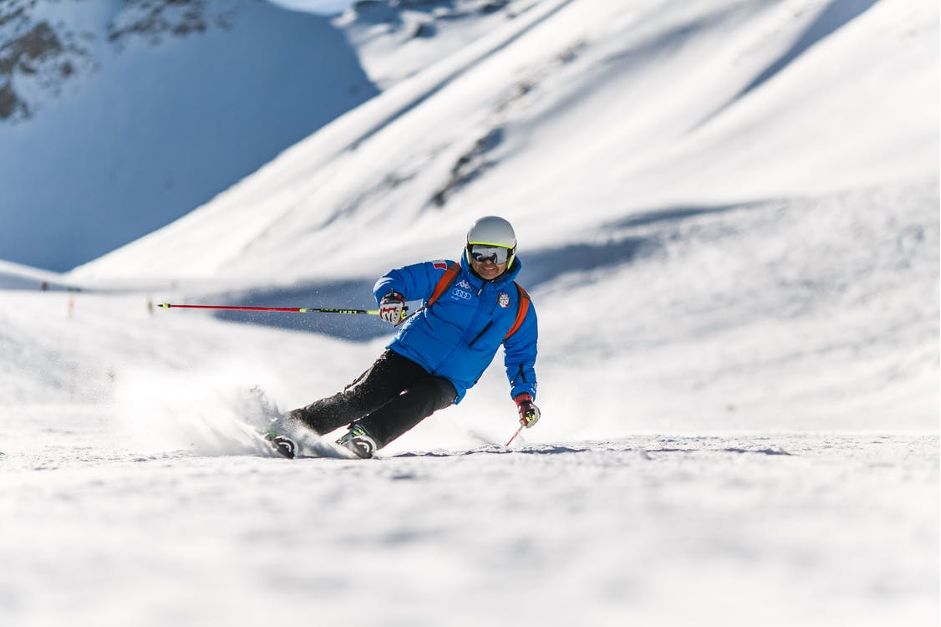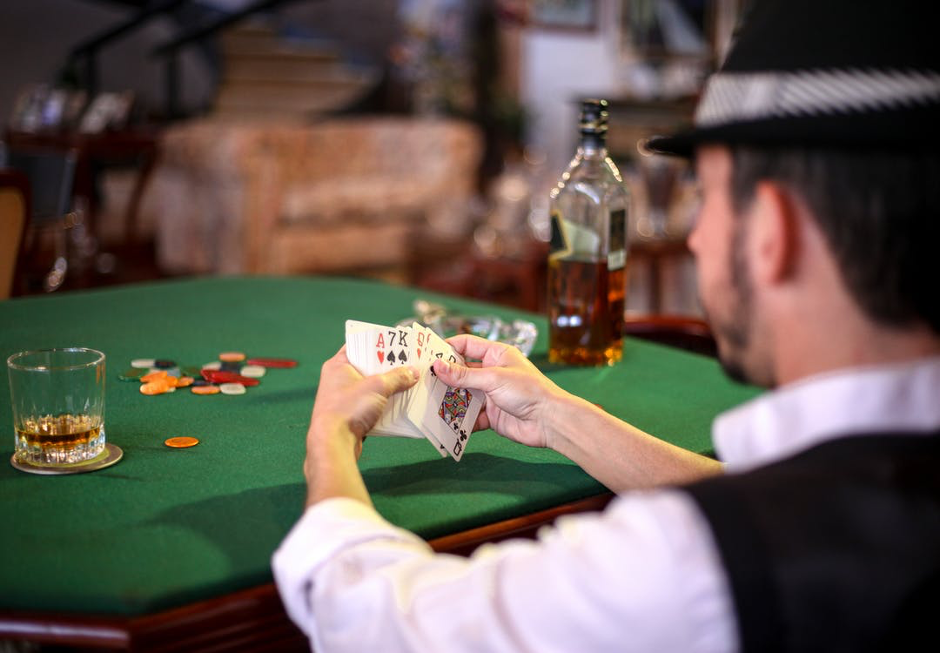Finding the balance between risk and reward in all we do is vital: too much risk for too little reward is dangerous and often leads to failure, not enough risk often means there won’t be much of a reward! Finding the sweet spot is necessary in all walks of like, not least when looking at stock market investment, gambling, and extreme sports.
Skiing
Competitive skiiers take calculated risks in order to be the best.
One of the most popular extreme sports is skiing, and not just the ‘extreme’ variety. Successful skier Mikaela Shriffin has used a risk versus reward approach to her career, and has seen her develop from a solid, reliable skier to one of the fastest and most competent competitors out there, improving her performance on a regular basis, consistently beating not only her rivals, but records she has previously set herself.
No time Like the Present
One of Shriffin’s key tips is that there is never a right time to start taking risks. After all, her performance was pretty solid and she was able to forge a successful career, so why change the approach and risk losing? The key here is to understand that the actions that have got you so far may not be enough to get you to the next level, and a risk-averse approach will see you stagnate. A sensible approach to risk, and the knowledge that it may take time to embed the new behaviours, will see the rewards outweigh the risks in the long run.
Risk Taking in Business
Big risks can bring big rewards to businesses.
As a general rule, business owners and entrepreneurs take on greater risk that the run of the mill employee. This is because, in law, employees have certain rights and protections with regards to pay and conditions, and they are able to leave and go to other employers should things go south.
On the other hand, business owners do not have that luxury: often their livelihood depends on the success of the business. However, in risking more, they have the potential for greater rewards. An employee will be guaranteed their salary, whereas the owner is able to reap the benefits of the profits.
Risk Taking in Gambling
Gambling is always a risk, no matter how skilled you are.
Gambling is another area where those involved will need to balance the risk with the reward. Low stakes games offer minimal risk to players, but equally lower rewards. They are, however, a great place to start, allowing beginners a taste of gambling without the risk. But most players want to continue to develop, and the lure of the high-stakes tables can sometimes be too great to resist; the anticipation of hitting the Jackpot or winning at Blackjack is thrilling.
With this in mind, players need to again balance the risk versus reward, to ensure that it is worth it, and need to ensure that they are equipped to be successful. Whilst some of the game is predicated on luck, there is a great deal of skill and knowledge involved in being successful at Blackjack, and the guide from Henry Tamburin on how to play Blackjack on a virtual platform like 888 Casino is a key read for any player looking to take their game to the next level.
Risk versus Reward in Investment
Any investment is predicated on risk versus reward. A stable, secure portfolio may provide mere pennies in growth year on year, but the investor is certain that they will not lose anything, which sometimes is enough for them. On the other hand, highly volatile investment portfolios can lead to massive returns, but equally huge losses. It is all down to the individual to balance what they are willing to lose, what they might gain, and how they can influence the outcome.
One strategy when investing is for individuals to diversify their portfolio with a variety of high and low risk investments. The idea behind this is that there is the potential for some great rewards, whilst making sure that there are some steady, albeit low return, investments to guarantee some security.
Threat versus Challenge
Willingness to take a risk is a not so much a skill that individuals can develop, but is an inherent part of their character. There are naturally risk-averse people in the world, just as there are natural risk takers amongst us. As well as an individuals’ natural inclination, there is their situation to take into consideration; what is a small risk to one person may be a huge risk for another. Generally, risk takers are more likely to be successful, as they tend to approach all aspects of life with more gusto and passion than the risk-averse. They will stand out, gain knowledge, learn from their mistakes, and do whatever they can to reach their goals.
Conclusion
If someone is afraid of social interaction or reticent in stepping out of their comfort zone in their daily life, they are unlikely to take risks in their career. Someone who is happy to try new things on the snow, like more difficult and complicated jumps, using new equipment, and entering more challenging competitions, sees a risk as a challenge, and is prepared to embrace it.
Ultimately, to a greater or lesser extent, every decision we make is the result of a risk/reward analysis, even if we don’t always see it as such.



